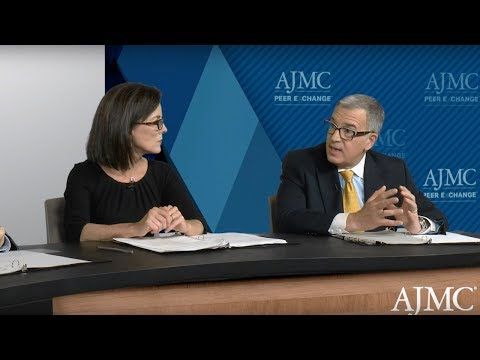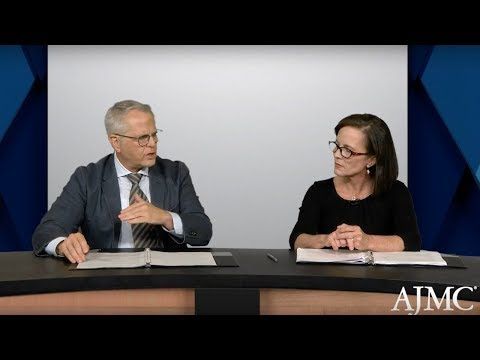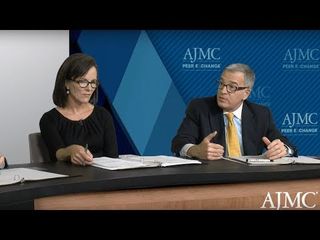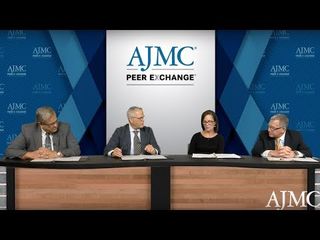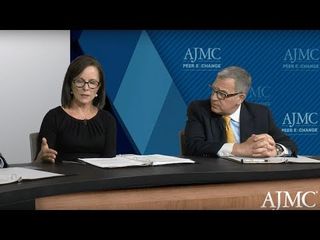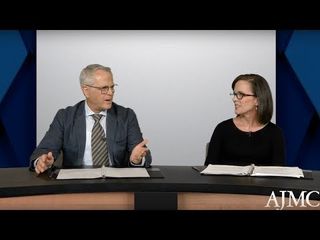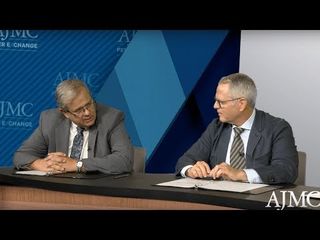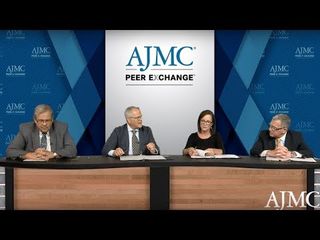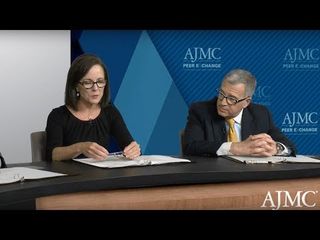
Oncology
Latest News
Latest Videos

More News


With cancer costs rising and patients with cancer disproportionately facing financial toxicity, alternative payment and care delivery models are thought to help alleviate some of the cost burden. However, a review finds limited evidence available to evaluate the efficacy of alternative payment and care models in cancer care.

Every week, The American Journal of Managed Care® recaps the top managed care news of the week, and you can now listen to it on our podcast, Managed Care Cast.

The flagship event of more than 450 Biden Cancer Community Summits convening throughout the day is focusing on sharing experiences, promoting new solutions, and bridging gaps in cancer care.

Although many different treatments exist for basal cell carcinoma (BCC), many methods have not been compared in head-to-head randomized trials. A review recently published in Annals of Internal Medicine looked to evaluate the comparative effectiveness and safety of treatments in adults with BCC.

This week, the top managed care news included the Senate overwhelmingly voting to ban pharmacist gag clauses; a study found the current vaccine pipeline for HIV, tuberculosis, and malaria may fall short; an expert noted a trend of healthcare cost data seeping into nonhealthcare companies’ earnings calls.
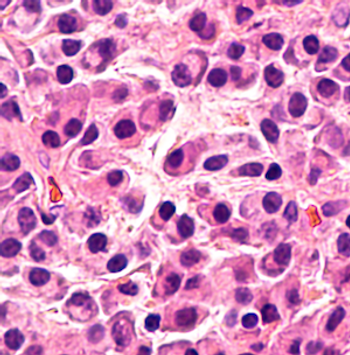
Amgen’s pipeline drug AMG 420, a bispecific T-cell engager (BiTE) for the treatment of patients with relapsing/refractory multiple myeloma (RRMM), has found positive preliminary results in a phase 1 trial.

Assessing a patient’s understanding of his or her own illness is important as cancer treatments become more and more complex, said Denalee O’Malley, PhD, LSW, instructor, Department of Family Medicine and Community Health, Rutgers Robert Wood Johnson Medical School.

As September marks National Ovarian Cancer Awareness Month, we sat down with ovarian cancer survivor Marion Roth and Vaagn Andikyan, MD, gynecologic oncologist, Western Connecticut Health Network, to discuss Marion's cancer journey and the importance of a multidisciplinary care team in treating complexities in cancer care.

With general consensus that those 70 years and older should not be routinely screened for prostate cancer, researchers argue that their study results identify an area for cutting low-value services to reduce healthcare spending.

Last week, the FDA granted priority review to a new supplemental Biologics License Application for pembrolizumab (Keytruda) as a monotherapy for first-line treatment of locally advanced or metastatic nonsquamous or squamous non–small cell lung cancer (NSCLC) in patients whose tumors express PD-L1 without EGFR or ALK mutations.

The study by the National Institute on Aging produced a few surprises and was stopped early when aspirin showed no benefit.

A National Comprehensive Cancer Network (NCCN) working group dedicated to analyzing current challenges under existing policy and treatment paradigms presented their findings and recommendations at an NCCN Policy Summit in Washington, DC.

As the term “value” has become a norm in healthcare, specifically in oncology, panelists at a National Comprehensive Cancer Network policy summit offered perspectives on where we are now in delivering high-quality cancer care under value-based payment models.

Every week, The American Journal of Managed Care® recaps the top managed care news of the week, and you can now listen to it on our podcast, Managed Care Cast.

A recent report from the National Comprehensive Cancer Network (NCCN) investigated the current state of chimeric antigen receptor (CAR) T-cell therapy and future strategies to consider as the novel immunotherapy evolves and is used in the treatment of more patients.

This week, the top managed care news included medical groups asking CMS to halt or slow down its plans to cut physician reimbursement for evaluation and management services; the Senate weighs a package of bills to combat the opioid epidemic; new research shows the Affordable Care Act pushed the uninsured rate down to 10%.

There are medications, procedures, and techniques that insurers could do a better job covering that would improve quality for women after breast cancer, said Don S. Dizon, MD, FACP, FASCO, director of Women's Cancers at the Lifespan Cancer Institute, director of medical oncology at Rhode Island Hospital, and associate professor of medicine at The Warren Alpert Medical School of Brown University.

Researchers at Baylor College of Medicine have found that preventing a mutated protein from leaving the nucleus and traveling to the cytoplasm of the cell can help inhibit the growth of leukemic cells in acute myeloid leukemia.

An early review of the second performance period of the Oncology Care Model (OCM) seems to show improvements over the first period.

Researchers determined the incidence and timing of rare, fatal side effects from immune checkpoint inhibitors, and said the number is still extremely low.

Pembrolizumab (Keytruda) earned European approval this week, in combination with platinum-based pemetrexed, for the first-line treatment of metastatic nonsquamous non-small cell lung cancer (NSCLC) in adults whose tumors lack EGFR or ALK mutations.

Three leading oncology practices unite with partners in technology and finance to announce the launch of OneOncology, a patient-centric, physician-driven, and technology-powered company with a mission to improve the lives of everyone living with cancer.

Patients with multiple myeloma (MM) who are enrolled in a Medicare Part D plan or other creditable prescription drug coverage have better survival than patients without prescription drug coverage. According to a study in Journal of Clinical Oncology, this improved survival seemed to be a result of patients having access to all treatment options.

In addition to the advances made in the HIV space, such as antiretroviral therapies and pre-exposure prophylaxis, the years of research has translated into advances outside the HIV field, including in oncology and other immune diseases.


